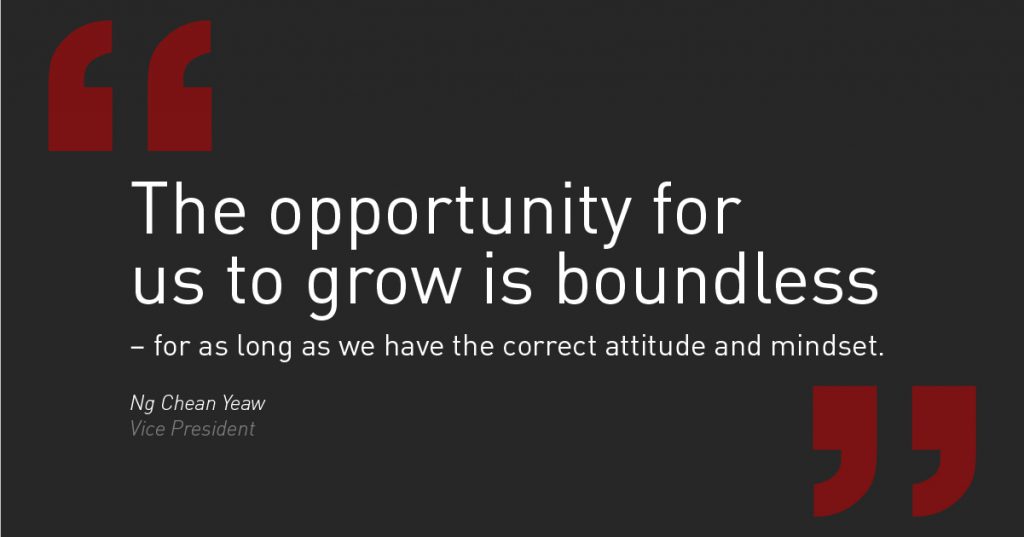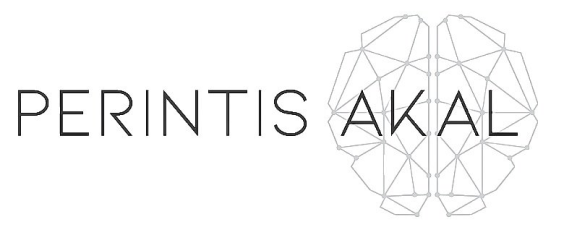[vc_row][vc_column][vc_column_text]By Ng Chean Yeaw, Vice President of PEMANDU Associates
Life as a consultant is a challenging, albeit rewarding one. Consultants are often put in a situation where they are expected to resolve issues and problem solve independently. More often than not, there are distinct deliverables requested at the behest of the client or stakeholders to be fulfilled in a short span of time. When put in situations of high pressure and time constraints, there’s only so much collective guidance and help one can receive – the rest depends on the individual’s approach in tackling these arduous challenges.
At PEMANDU Associates, the concept of ‘learning by doing’ is deeply embedded in our work culture. Our President & Chief Executive Officer, Dato’ Sri Idris Jala often uses the analogy of learning how to ride a bike to explain the concept. How does one learn to cycle? Do you take up a course on cycling and learn the theories behind it? Or, do you simply get on a bicycle and learn how to cycle by actually doing it?
Sure, you are bound to fall in the process of learning, but that also gives you the opportunity to learn to pick yourself up and try over and over again until you get (over even master) it. In other words, take the bull by the horns and figure out ways to tame it. Or for us consultants, how to do it smarter and faster.
But does experiential learning apply to non-physical skills? What about skills like Microsoft Excel?
My first assignment as a fresh graduate starting my career in consulting was to create a Key Performance Indicator (KPI) Dashboard for every Cabinet Minister of the Malaysian Government. But the rush of excitement was very quickly swept away by a wave of anxiety of being entrusted with this huge responsibility.
As someone fresh out of college, where would I even begin?
Back then, everyone was tracking and computing monthly KPIs manually on a PowerPoint dashboard. Generations of these dashboards were designed that way – a tedious task that no one enjoyed. Not only was it laborious, there was also plenty of room for human errors, especially in the aggregation and computation of scores. The task assigned was to take the existing manual dashboard, and to transform it into something more user-friendly for the ministers. To top it all off, I was expected to conjure this fully functioning new tool within the span of a week, with my then-limited knowledge of excel. Talk about playing the Game of the Impossible, a principle that all PEMANDU Associates consultants are expected to embrace from the get-go.
So how did I do this?
A Method for Success
When you work at something long enough, chances are you will eventually learn how to do it. A methodical approach, however, makes your chance of succeeding much greater and faster. In this case, I was aware of the significant gaps that I needed to fill in order to deliver this task, and I needed to find solutions quickly and effectively.
1. Resourcing for knowledge
The good thing about the internet era today is that you have a plethora of information and knowledge at your fingertips. An obvious first point of resource is… drums rolling – Google. But this still requires a bit of research to find a resource that is reliable and easily accessible to you. I spent a significant amount of time poring through the internet and Googling solutions to understand the functions and formulas of Excel.
In my research, I’ve discovered some great pages that can provide you step-by-step guides on Excel like Exceljet and Tech on the Net, just to name a few. Forums on Stack Overflow and Mr. Excel were also very useful in providing real-life scenario examples and solutions by other Excel coders. Every difficulty that I encountered, I resolved it with hours of heavy research on Google.
2. Planning and learning for execution
With the ultimate goal in mind, that is to positively impact an organisation by automating the monthly KPI tracking and monitoring, the structure of the dashboard needed to be effective and efficient. Hence, I came up with the plan to structure the dashboard based on the 3 principles required of Excel modelling that is to do it fast, do it right, and make it look good. In other words, create a dashboard that allows for faster and easier auditing to leave room to correct errors and produce a well-structured model. Having core principles was imperative in guiding me through the implementation of strategy as it became the base of what needed to be done.
3. Discipline of action
 Another part of the task was the execution part, which entailed a robust experiential learning experience. In other words, numerous iterations and trials (with plenty of sleepless nights and failures) to customise the features on Excel to fit the dashboard’s purpose. I was spending the full 40 hours a week of my job to create this tool. The repetitive process of testing, failing, reformatting, and then, testing again pushed me to learn quickly on the job. Failure was an inevitable part of this stage and it can be demotivating at times. I’m not going to lie. However, failure also taught perseverance and to never give up.
Another part of the task was the execution part, which entailed a robust experiential learning experience. In other words, numerous iterations and trials (with plenty of sleepless nights and failures) to customise the features on Excel to fit the dashboard’s purpose. I was spending the full 40 hours a week of my job to create this tool. The repetitive process of testing, failing, reformatting, and then, testing again pushed me to learn quickly on the job. Failure was an inevitable part of this stage and it can be demotivating at times. I’m not going to lie. However, failure also taught perseverance and to never give up.
By the end of the week, I was whizzing through formulas and cleaning up the dashboard with final touches.
4. Milestones
I finally managed to create an Excel semi-automated dashboard that significantly reduces the time required to generate a monthly report. Subsequently, the dashboard along with the built-in features was exported as an online tool to be extensively utilised by key stakeholders in the Ministries. This tool was handed over and implemented for the following seven years or so. It was a huge accomplishment for a fresh graduate like me with the minimal experience that I had to have accomplished.
Going back to the question asked earlier, “Can we apply learning by doing beyond non-physical skills?” My answer to that would be a resounding yes.

As I reflect back on this experience and relate it back to Dato’ Sri Idris Jala’s “learning by doing” analogy, seizing opportunities for self-learning is very much at the core of who we are as consultants here at PEMANDU Associates. With every project spanning across diverse industries and requiring different capabilities, the opportunity for us to grow is boundless – for as long as we have the correct attitude and mindset. And without this experience, I would not have been able to master Excel within that one-week span to eventually become PEMANDU Associates’ “go-to Excel guy.” I believe that with the right mindset, determination, and absolute tenacity, it is entirely possible to learn a wide range of knowledge and skills without needing to attend any physical training on the subject.
Transformation happens not upon attainment of a goal, but through the process of actually doing and getting there.
[/vc_column_text][/vc_column][/vc_row]







